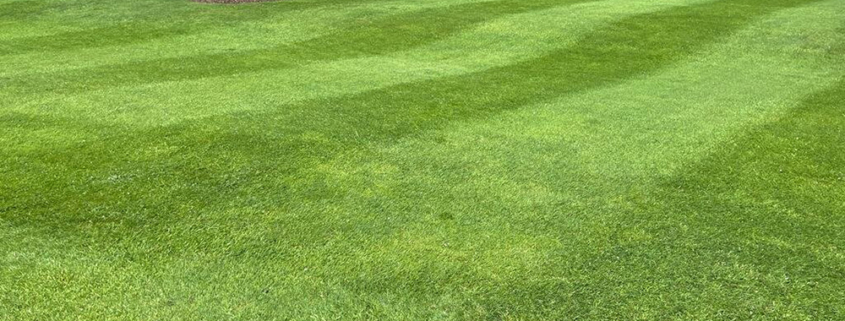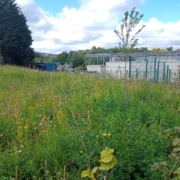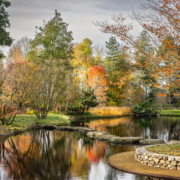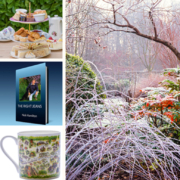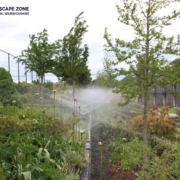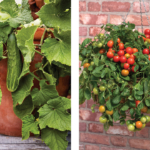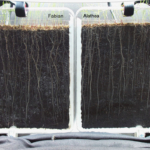Call for government and horticultural bodies to endorse the domestic lawn as part of the UK’s sustainable environment and biodiversity
A Charter for Saving an Essential Part of the UK’s Biodiversity
Here in the UK, we have our very own Brazilian Rain Forest Crisis – a loss of natural habitat, a degrading and erosion of sustainable biodiversity and a slow destruction of our own bearable living conditions. And it’s happening right here in our own gardens, every time a square foot of living lawn is replaced with fake grass carpeting. It really is that serious but you’d never know – and gardeners are not the villains.


Call for government and horticultural bodies to endorse the domestic lawn as part of the UK’s sustainable environment and biodiversity
As gardeners, we are guided by what the industry offers us – from bulbs and seeds, tools, machinery and fertilisers to lifestyle trends, desires and dreams. And that industry, which includes education, should be guided by governments. But as individual gardeners, we also have our own responsibility. We each care for our own pocket of land that, whether we like it or not, plays a crucial role in supporting our local biodiversity. Increasingly, gardeners want to get it right, to reduce the use of chemicals, do things to help all the pollinating insects, birds, etc, and cut our own carbon footprints while we do it.
But what help do we get? What guidance framework is there for us?
Not a single authoritative horticultural body, let alone DEFRA, takes a stand and speaks the truth about plastic grass that is incapable of supporting any life forms. There is no guidance, let alone regulation, to help landscapers and other professionals make the right choices. And there is certainly no regulation over the plastic grass industry that, given its way, would carpet the entire county for profit.
Cause to be proud
The gardens and parks in the UK make an immense contribution to sustainable biodiversity. They help ensure the survival of all kinds of plants, insects and animals, linked in their food and reproductive chains. And that is why the choices we, as gardeners, make have such important and long-lasting consequences. There will always be small or discrete spaces where living lawns are just not viable. But even here, with the correct guidance, every square foot of petroleum-based, non-recyclable fake lawn that is laid would be accompanied by a mitigating feature in the garden design – something that maintains the eco-balance. That is not happening yet – and all for want of authoritative facts and guidance about replacing living plants with plastic.
What lies behind DEFRA’s refusal to take a stand?
Whilst South American forests have been destroyed with the overt support of government and business, here in the UK lawns are destroyed and replaced with plastic simply because those authorities that should protect them can’t be bothered. They can’t be bothered to regulate the plastic grass industry; they can’t be bothered to explain the dangers (or even study and share the research); and they can’t be bothered to make scientifically correct information available to all of us so that we can make informed decisions about our own gardens.
And why does no one else speak out?
I wish I knew the answer. Inexplicably no MP, no horticultural organisation and no training related to gardening seems prepared to help promote the basics of simple, effective lawn care as a means of environmental preservation – providing the kind of information that will ensure lawns continue to be a core part of everything from architectural plans for new-build to individual domestic gardening projects.
So, we in the Lawn Association call upon every governing body and authority capable of and responsible for the guidance of gardeners, home-owners, and horticultural and planning professionals to create a charter that promotes better information about the essential benefits of living lawns and the truth about simple lawn care. If you feel the same, why not write to your MP, your local councillor or training college?
Our core mission at the Lawn Association is to make accurate lawn care information readily available via our website and through our Free Membership Scheme for gardening enthusiasts.
Go to the @LawnAssociation Facebook page to join the Lawn Enthusiasts Group, and get free association membership via the website, www.lawnassociation.org.uk
For the latest industry news visit landscapingmatters.co.uk/news
Get all of the big headlines, pictures, opinions and videos on stories that matter to you.
Follow us on Twitter and Instagram for fun, fresh and engaging content.
You can also find us on Facebook for more of your must-see news, features, videos and pictures from Landscaping Matters


